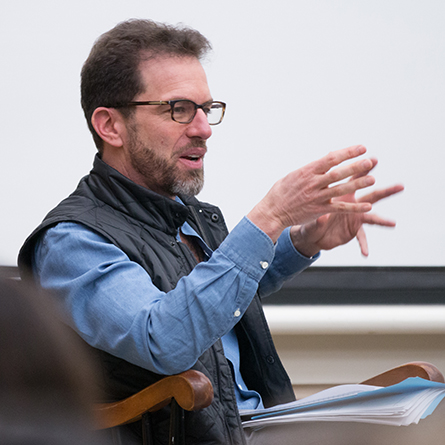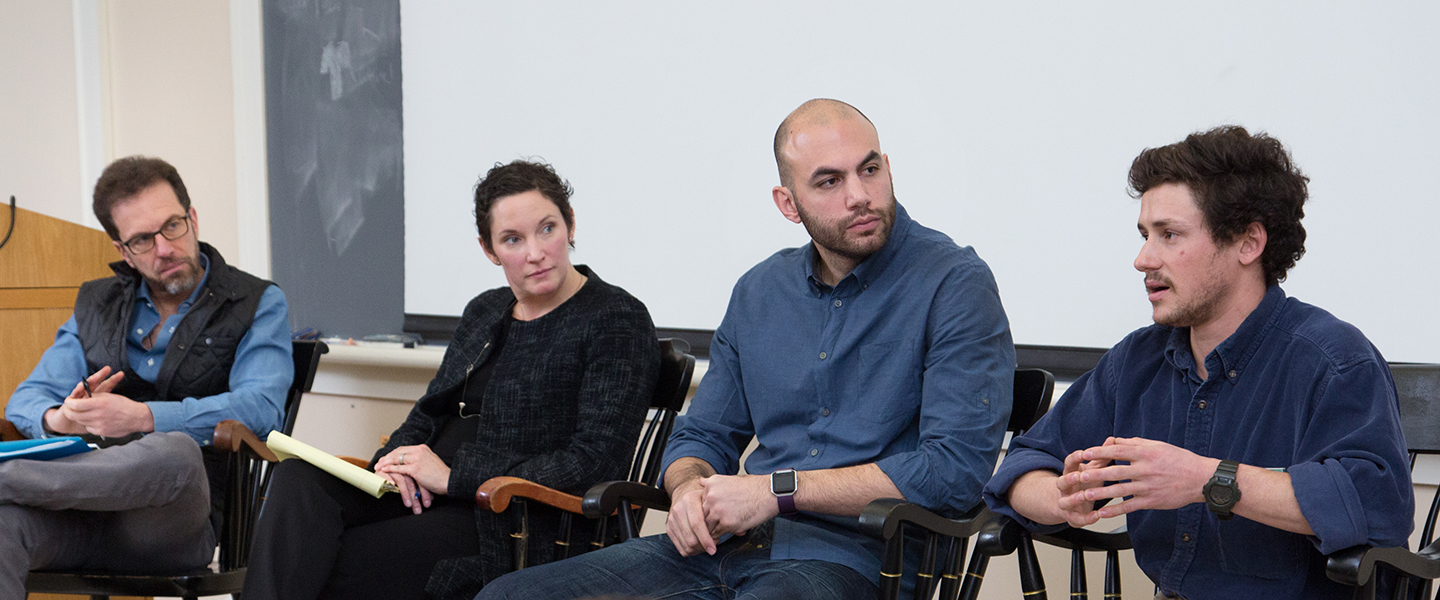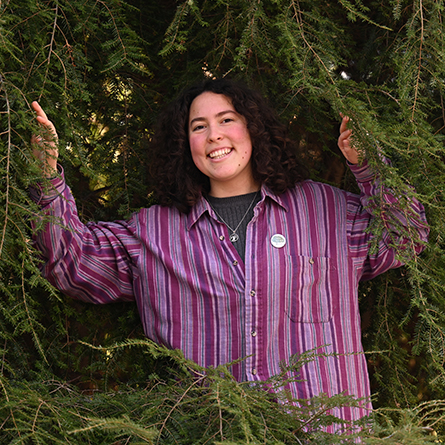
Food Justice

Fresh, healthy, organic food has never been more plentiful or more easily accessible—for those who can afford it.
As a founding partner of the Stone Barns Center for Food and Agriculture in Pocantico Hills, New York, Connecticut College Trustee David Barber ’88 is changing the way food is produced and consumed so that it is easier to acquire for everyone.
“Healthful food has become increasingly available to a particular population, and less so to people who live in remote parts of the country,” said Barber, who also owns the farm-to-table Blue Hill restaurants.
“Particularly in the U.S., there are big issues with ‘food deserts,’ or access to fresh food as opposed to processed food. And income is related to that. It’s much easier for wealthier people to eat well.”
On Feb. 11, Barber moderated a panel of local experts who discussed how food production and consumption is changing, and highlighted the efforts underway—both locally and around the country—to build a sustainable system of healthy food for all.
The panel, which drew an audience from campus and from the local communities, featured Rachel Black, visiting professor of anthropology at Connecticut College; Dan Giusti, founder of Brigaid and former chef at Noma, a two-Michelin-star restaurant in Copenhagen, Denmark; and Phil Haynes ’14, assistant livestock manager at Stone Barns Center.
Haynes provided the perspective of a young farmer and entrepreneur who got involved in food systems—while still at Conn—by running a community-supported agriculture service with his brother in New Jersey.
In a CSA model, customers pay for crops prior to the season, then get crops delivered regularly once they are available. Haynes said that with this model, his farm grew its client list from an initial 25 members to nearly 175 in five years.
“It takes time and a lot of patience and determination on the part of the farmer to push through those early years. It’s a struggle for a lot of them,” Haynes said, noting that getting such a system going is often a challenge for other farmers.
“But steadily each year our reputation grew and as the quality of our product increased.”
The face of modern agriculture in the U.S. is dominated by large-scale farms, which allow for cheaper and more easily available meat and produce—but often at a detrimental cost to the soil from over-production, Barber said.
Haynes sees great value in preparing a new generation of farmers who can work the land while keeping sustainability and quality as top priorities—part of Stone Barns’ driving goals.
“It’s up to places like Stone Barns to make sure we have a plan for the land, and the farmers to work it,” Haynes said.
One way to alter food habits is through programs in public schools that introduce children to a healthier way of eating and offer menus that reduce processed food and sugar intake. Through his work in public schools, Giusti faces the challenge of preparing food that is nutritious, minimally processed and tasty enough for students to enjoy.
Giusti established Brigaid—a startup that aims to improve the quality of school food by placing trained chefs directly in school’s kitchens. Brigaid is working with New London Public Schools, where Giusti has learned to accept victories, however small: like substituting cold cereal with hot oatmeal and breakfast sandwiches, or damaged apples with fresh cut cantaloupe and pineapple.
“You have to drop your ego as a chef and say these little things are making a difference,” Giusti said during the panel discussion. “Change has to start somewhere.”
Change can also come through adapting models used in other cultures. For Black, an anthropologist who has studied food systems around the world, the U.S. could model France or Italy, where food production is driven less by over-consumption, and is more sustainable.
Black noted that in Italy, farmer’s markets are geared largely for the working class, and some farmers have spent generations growing crops for the public markets. In the U.S., where farmer’s markets often draw wealthier shoppers, many farmers now accept state or federal food subsidies as payment.
“In the United States people realize we have issues, and there’s starting to be a growing awareness,” Black said. “We’re just starting to open our eyes to this need for changes like the ones David, Dan and Phil are leading.”
February 16, 2017

